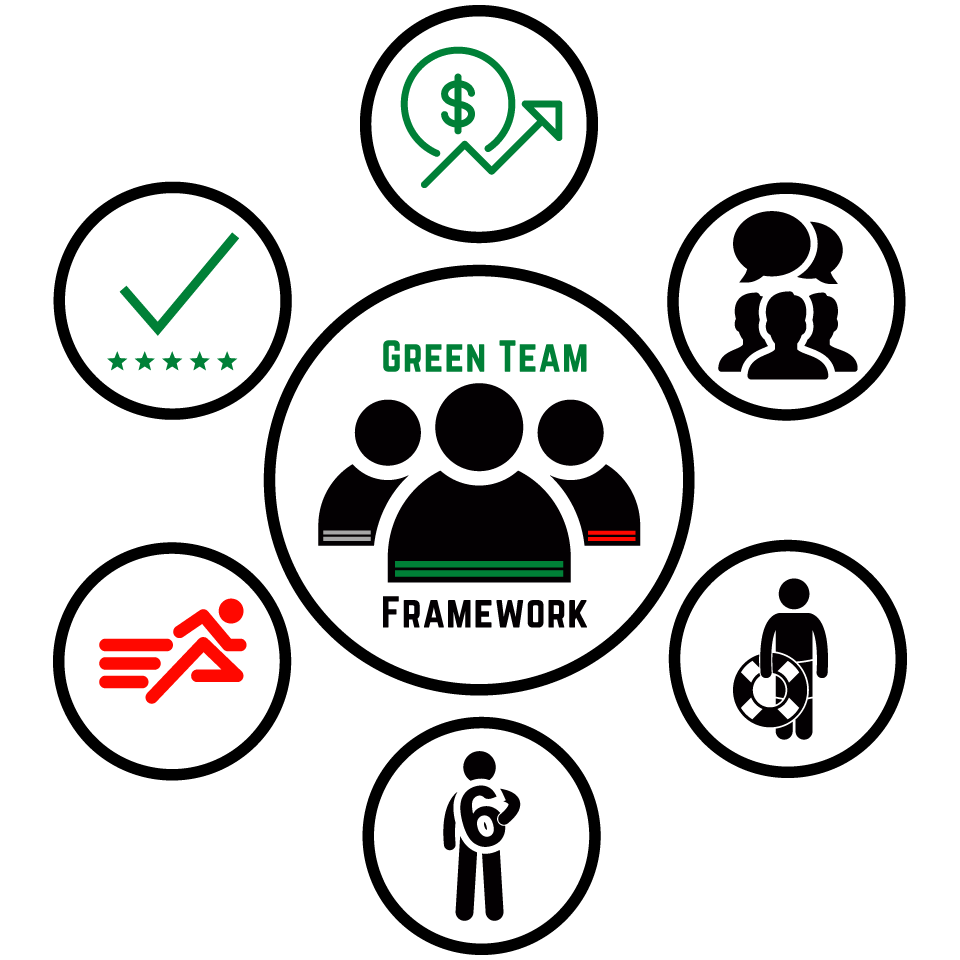Home / Blog / Engagement /

How do you get the most out of your players? You get them to engage and buy-in at a higher rate. No coach was better at this than Hall of Famer and 11-Time World Champion Phil Jackson. One thing Jackson did to increase athlete engagement was to give each player a book. Jackson would choose a book that spoke to each player’s strengths and weaknesses. The book would help the player realize how they could improve in their role and ultimately help the team achieve its goals. By increasing his players’ engagement, Jackson was able to help his teams reach their full potential.
Engaged athletes have increased investment and commitment to their team and sport. It is a crucial aspect of an athlete’s performance and experience. When athletes engage at a high level, they put in the time and effort necessary to achieve their goals.
Less engaged athletes struggle to improve their performance. A lack of focus and commitment will also be evident as athletes lose engagement.
Higher rates of engagement help avoid athlete burnout. Burnout is a common problem among overworked athletes. Engaged athletes are less likely to experience burnout. They have a strong sense of purpose in their sport.
Coaches can encourage athlete engagement by providing a healthy team culture. Creating a safe and inclusive environment where athletes feel valued promotes athlete engagement.
Engagement is a critical aspect of an athlete’s experience and performance. Coaches can help promote this by setting clear goals and providing support.
What is Athlete Engagement?
Athlete engagement involves focus, investment, and commitment to the team and sport. It involves cognitive, emotional, and behavioral components. Athlete engagement is essential because it impacts an athlete’s performance, development, and well-being.
Investment and commitment are the two key components of athlete engagement.
Investment
Investment is the emotional and physical resources that athletes give to their sport. This can include time, effort, energy, and focus. Athletes invested in their sport tend to be more motivated, dedicated, and goal-oriented. They have a clear sense of purpose and direction, which helps them stay on track to achieve their goals.
Commitment
Commitment refers to the loyalty and dedication that athletes have toward their sport. This includes the ability to persist through challenging times, setbacks, and obstacles. Committed athletes have a deep sense of connection with their sport. They are more likely to stay engaged and motivated over the long term, even in the face of adversity.
Athlete engagement is a critical aspect of an athlete’s performance, development, and well-being. By helping athletes stay committed to the team, coaches help them develop passion. Passion is needed to succeed both on and off the field.
Why is Athlete Engagement Important?
Good engagement is critical for athletes to develop strong relationships on their teams. The more engaged an athlete is the more enjoyable the sport experiences is for all involved.
It’s not only about winning games but also about building a supportive community. Athlete engagement can improve communication, build lasting relationships, and elevate everyone’s experience.
Improves Communication
Effective communication is essential in sports. Athlete engagement allows players to communicate with each other and their coaches. By growing team communication, athletes create an environment that fosters growth and improvement. Strong team communication also helps resolve conflict and promote unity.
Builds Lasting Relationships
Lasting relationships between players and coaches are why we play sports. Highly engaged athletes are more likely to support and encourage each other. This creates a sense of camaraderie that extends beyond the playing field. This sense of community helps to build trust and create lasting bonds.
Strong relationships lead to better team performance and a more enjoyable experience.
Elevating Overall Experience
Finally, athlete engagement can elevate the sports experience for all involved. When athletes feel engaged and supported, they are more likely to enjoy themselves.
When athletes are more engaged the environment becomes more welcoming and inclusive. As a result, sports become more enjoyable for all. When athletes feel better, they play better. When they play better, the team wins more.
We love sports because they create a sense of community for us. Engagement goes a long way in creating a sense of community for athletes, coaches, and parents.
How Athlete Engagement Increases Motivation & Performance
Athlete engagement is critical to increasing your team’s motivation and performance. It’s important to understand how athlete engagement can boost your team’s performance. By promoting engagement, you can help your athletes achieve their full potential.
Motivation
- Sense of Purpose
- Passion
- Clear Understanding of Goals
Engagement increases motivation in several ways. First, it gives athletes a sense of purpose. When athletes understand their role on the team, they are more motivated to perform at their best.
Second, engagement helps athletes discover their passion for the sport. Athletes who are passionate about their sport are more likely to put in extra effort to succeed.
Finally, engagement provides athletes with clear goals. When athletes know what they are working towards, they are more motivated to achieve.
Performance
- Motivated to Improve Skills
- Increased Focus
- Increased Commitment
Athlete engagement also increases performance. Engaged athletes work hard to improve their skills. They look for ways to become better and perform at their highest level.
Engaged athletes also have increased focus. They are fully present during practices and games, which allows them to perform at their best. They also have increased commitment. They are willing to put in the time and effort required to achieve their goals.
Enhance athlete engagement and watch your team’s performance soar!
Avoiding & Reducing Athlete Burnout
Burnout is a serious issue that affects many athletes. It can lead to physical and emotional exhaustion, decreased motivation, and reduced performance.
It’s important to understand how athlete engagement can help reduce athlete burnout.
Overworked
One of the main causes of burnout is overworking athletes. When athletes get pushed too hard, they become physically and emotionally exhausted.
You can help prevent burnout by managing your athletes’ workload. It’s also important to ensure that they have enough time for rest and recovery. It’s a great idea to encourage athletes to engage in other activities outside of their sport. Hobbies or socializing with friends reduces stress and promotes well-being.
Overstressed
Stress is another major cause of burnout among athletes. Creating a positive and supportive team environment reduces stress. Meditation or breathing exercises are also great tools to manage and reduce stress. Encouraging open communication with athletes can also help reduce stress and prevent burnout.
Lacking Motivation
Providing positive feedback and recognition for athletes’ accomplishments boosts their motivation and confidence. Building strong relationships also helps keep athletes motivated and avoid burnout.
Athlete engagement is a critical component to avoiding and reducing athlete burnout. Reducing workloads, and stress, and keeping athletes motivated all help us avoid athlete burnout.
Whose Responsibility is Athlete Engagement?
Everyone plays a role in athlete engagement. It’s important to understand who is primarily responsible for it. It’s a coach’s responsibility to ensure athletes are motivated to give their best. Athletes themselves also need to be willing and motivated to engage.
Athletes
At the end of the day, athletes are responsible for their own engagement. They need to commit to their sport and their team. Coaches can encourage athlete engagement by creating a positive and supportive team environment.
Coaches
Coaches play a vital role in athlete engagement. They are responsible for creating a positive and supportive team environment. Coaches should encourage athletes to take part and engage. Coaches can foster engagement by providing positive feedback and recognition.
Family, Friends, and Community
Athletes and coaches need a strong support system in place. Family, friends, and the community can provide this support. Athletes who feel encouraged stay motivated and engaged. Athletic directors also contribute by providing resources and support to athletes and coaches.
Having great engagement is the responsibility of everyone involved in the sports team. All parties can promote engagement and help success be achieved on and off the field.
How can Athlete Engagement be Encouraged, Fostered, and Taught?
Engagement is essential in achieving an athlete’s goals and improving their performance. Yet, staying engaged can be a challenge. That’s where coaches come in.
It’s important to remember that engagement is a two-way street. Athletes must also take responsibility for their engagement levels. By working together, coaches and athletes can create an engaging environment. One which helps athletes achieve their goals and improve their performance.
Here are some ways coaches can teach, encourage, and foster athlete engagement:
Provide Support
Athletes need a support system to stay engaged. Athletes need to feel supported by their coach and their teammates. One can support by providing positive feedback. This creates a positive team environment that encourages athletes to engage.
Sense of Purpose, Passion, and Clear Understanding of Goals
Athletes must have a sense of purpose, passion, and a clear understanding of their goals. This helps them stay motivated and committed to their sport and their team. To do this athletes need resources and support. Athletes should be celebrated when they achieve their goals. Focus on team communication and building strong team relationships. This will help athletes feel connected to their teammates and the sport they love.
Give positive feedback
Positive feedback can be a great motivator for athletes. Recognize their achievements and encourage athletes to keep pushing themselves.
Build a healthy team culture. A healthy culture will help athletes feel more connected and engaged. Encourage teamwork, respect, and positive attitudes among your athletes.
Involve the community
Engage the community in your team’s activities. This will create a sense of pride for your athletes, which can help them stay motivated and engaged.
Avoiding Stress
As a coach, it’s important to create a positive environment that minimizes stress. This can include providing clear instructions and expectations. Create a consistent routine, and ensure all athletes have the resources they need.
Don’t Overwork Athletes
It’s crucial to push athletes to achieve their goals. It’s essential to ensure that they are not overworked. Coaches should track athletes’ workloads to make sure they are not overworked.
Communication
Open and honest communication both as a team and one-on-one should take place. This can help athletes feel more connected to the team and more engaged in their own performance.
Conclusion
Athlete engagement is essential for any sports team’s success. As a coach, you can foster athlete engagement by providing great support. Be sure to give positive feedback and build a healthy team culture. Focus on creating a positive team environment. When you do help athletes achieve their full potential. And they will enjoy the experience of playing sports.
Looking for resources to help engage your athletes? Look no further. Our exercise Word Pop will raise the levels of engagement in your players, challenge them to think quickly and stay ready to perform their best.
Word Pop is part of our Coaches Membership where we have 27 dynamic exercises for improving athlete engagement for athletes.
Have fun and #LeadEmUp




